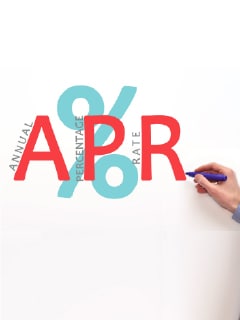CKYC Registry
-
Customer Service Contact us Service request Locate a branch
Find all the help you need
Scan the QR, get our app, and find help on your fingertips

Help CenterSupport topics, Contact us, FAQs and more
-
Login
Are you ready for an upgrade?
Login to the new experience with best features and services
-
Login
Are you ready for an upgrade?
Login to the new experience with best features and services
- Accounts
-
Deposits
IDFC FIRST Bank Deposits
View all Deposits -
Loans
IDFC FIRST Bank Loans
View all Loans - Wealth & Insure
-
Payments
IDFC FIRST Bank Payments
View all Payments -
Cards
IDFC FIRST Bank Cards
View all Cards - Blogs
- Corporate Account
-
Cash Management Services
IDFC FIRST Bank Cash Management Services
View all Cash Management Services - Supply Chain Finance
-
Corporate Lending
IDFC FIRST Bank Lending
View all -
Treasury
IDFC FIRST Bank Treasury
See more details - NBFC Financing
Support topics, Contact us, FAQs and more
- IDFC FIRST Bank Accounts
-
Savings Account
-
Corporate Salary
Account -
Senior Citizens
Savings Account -
First Power
Account -
Current Account
-
NRI Savings
Account -
TASC Institutional
Account -
Savings Account
Interest Calculator
- IDFC FIRST Bank Deposits
-
Fixed Deposit
-
Recurring Deposit
-
NRI Fixed Deposit
-
Safe Deposit Locker
-
FD Calculator
-
RD Calculator
- IDFC FIRST Bank Loans
-
Personal Loan
-
Consumer Durable
Loan -
Home Loan
-
Business Loan
-
Professional Loan
-
Education Loan
-
New Car Loan
-
Pre-owned Car Loan
-
Two Wheeler Loan
-
Pre-owned Two
Wheeler Loan -
Commercial Vehicle
Loan -
Gold Loan
-
Loan Against Property
-
Loan Against Securities
-
Easy Buy EMI card
-
Personal Loan
EMI Calculator -
Education Loan
EMI Calculator -
Home Loan
EMI Calculator
- IDFC FIRST Bank Wealth & Insure
-
FIRST Select
-
FIRST Wealth
-
FIRST Private
-
Mutual Funds
-
Sovereign Gold Bond
-
Demat Account
-
Term Insurance
-
Life Insurance
-
Health Insurance
-
General Insurance
-
Bonds
-
Loan Against
Securities -
Portfolio Management
Service
- IDFC FIRST Bank Payments
-
FASTag
-
Credit Card
Bill Payments -
UPI
-
Funds Transfer
-
Forex Services
-
Pay Loan EMI
- IDFC FIRST Bank Cards
-
Ashva :
Metal Credit Card -
Mayura :
Metal Credit Card -
FIRST Millennia
Credit Card -
FIRST Classic
Credit Card -
FIRST Select
Credit Card -
FIRST Wealth
Credit Card -
FIRST WOW!
Credit Card -
Deals
-
Debit Cards
-
Co-branded Cards
-
Credit Card
EMI Calculator -
FIRST Corporate
Credit Card -
FIRST Purchase
Credit Card -
FIRST Business
Credit Card
- Premium Metal Credit Cards
-
AshvaLifestyle1% Forex₹2,999
-
MayuraLifestyleZero Forex₹5,999
-
FIRST PrivateInvite Only
- Best for travellers
-
MayuraZero ForexMetal₹5,999
-
Ashva1% ForexMetal₹2,999
-
FIRST WOW!Zero ForexTravelLifetime Free
-
FIRST SWYPTravel OffersEMI₹499
-
FIRST Select1.99% ForexLifestyleLifetime Free
-
FIRST Wealth1.5% ForexLifestyleLifetime Free
-
Club VistaraTravelLifestyle₹4,999
-
IndiGo IDFC FIRST Dual Credit CardTravelLifestyle₹4,999
- Max benefits, Free for life
-
FIRST Classic10X RewardsShoppingNever Expiring Rewards
-
FIRST Millennia10X RewardsShoppingNever Expiring Rewards
-
FIRST Select10X RewardsLifestyle1.99% Forex
-
FIRST Wealth10X RewardsLifestyle1.5% Forex
-
FIRST WOW!RewardsTravelZero Forex
-
LIC ClassicRewardsInsuranceShopping
-
LIC SelectRewardsInsuranceShopping
- Reward Multipliers
-
AshvaLifestyleMetal₹2,999
-
MayuraLifestyleZero Forex₹5,999
-
FIRST ClassicNever Expiring RewardsShoppingLifetime Free
-
FIRST MillenniaNever Expiring RewardsShoppingLifetime Free
-
FIRST SelectNever Expiring RewardsLifestyleLifetime Free
-
FIRST WealthNever Expiring RewardsLifestyleLifetime Free
- Rewards & Credit on UPI
-
FIRST Power+FuelUPI₹499
-
FIRST PowerFuelUPI₹199
-
FIRST EA₹NVirtual1% Cashback₹499
-
FIRST DigitalVirtualUPI₹199
-
IndiGo IDFC FIRST Dual Credit CardUPITravelDual cards
- Fuel and Savings
-
FIRST PowerRewardsUPI₹199
-
FIRST Power+RewardsUPI₹499
-
LIC ClassicRewardsInsuranceShopping
-
LIC SelectRewardsInsuranceShopping
- Express and Flaunt
-
AshvaMetal1% Forex₹2,999
-
MayuraMetalZero Forex₹5,999
-
FIRST SWYPEMIOfferMAX₹499
-
FIRST MillenniaRewardsShoppingLifetime Free
- FD Backed rewarding Credit Cards for all
-
FIRST EA₹NVirtualCashback₹499
-
FIRST WOW!Zero ForexTravelLifetime Free
-
CreditPro Balance TransferTransfer & SaveReduce InterestPay Smartly
- IDFC FIRST Bank NRI Forex Solutions
-
Send money to India-Wire transfer
-
Send money to India-Digitally
-
Send money abroad
-
Max Returns FD (INR)
- IDFC FIRST Bank MSME Accounts
-
Platinum Current
Account -
Gold
Current Account -
Silver Plus
Current Account -
Merchant Multiplier
Account -
Agri Multiplier
Account -
TASC Institutional
Account -
Dynamic Current
Account -
World business
Account -
First Startup
Current Account
- IDFC FIRST Bank Business Loans
-
Business Loan
-
Professional Loan
-
Loan Against Property
-
Business Loan for Women
-
Working Capital Loan
-
Construction Equipment Loan
-
Machinery Loan
-
Healthcare Equipment Loan
- IDFC FIRST Bank Business Solutions
-
Payment Solutions
-
Tax Payments
-
Doorstep Banking
-
Point of Sale (POS)
-
Escrow Accounts
-
NACH
-
Payment Gateway
-
UPI
-
Virtual Accounts
-
As per amendment in the Income Tax Rules, PAN or Aadhaar are to be mandatorily quoted for cash deposit or withdrawal aggregating to Rupees twenty lakhs or more in a FY. Please update your PAN or Aadhaar. Kindly reach out to the Bank’s contact center on 1800 10 888 or visit the nearest IDFC FIRST Bank branch for further queries.
-
-
Most Searched
Sorry!
We couldn’t find ‘’ in our website
Here is what you can do :
- Try checking the spelling and search
- Search from below suggestions instead
- Widen your search & try a more generic keyword
Suggested
Get a Credit Card
Enjoy Zero Charges on All Commonly Used Savings Account Services
Open Account Now
Personal Loan
Drowning in loans? Learn how debt consolidation can help you swim
Key Takeaways
Debt consolidation helps combine multiple debts into one simple EMI, reducing stress and making repayments easier to manage.
Using a debt consolidation loan can lower your overall interest rate and simplify your financial obligations.
FIRSTmoney from IDFC FIRST Bank offers fast approvals, competitive rates, and zero foreclosure charges for smooth debt repayment.
Following good financial habits after consolidating your debt is crucial to maintaining a debt-free lifestyle and enhancing your credit health.
Are you tired of multiple credit card bills and personal loan EMIs? Juggling different due dates, rising interest rates, and constant reminders can be exhausting—and no matter how much you pay, the debt never seems to go down. That’s where debt consolidation steps in.
Debt consolidation helps you combine all your outstanding debts into one easy EMI, reducing stress and making your finances easier to manage. With just one repayment to track, you get a clear path forward and a chance to pay off your debt faster.
Here’s how debt consolidation works and how you can get started.
READ MORE
What is debt consolidation?
Multiple loans and credit card bills can create financial instability. Debt consolidation helps by combining everything into one new loan, so you repay just one EMI each month.
- What it achieves
- Methods you can use
It clears your existing debts and replaces them with a single loan that’s easier to track and manage.
a. A debt consolidation loan (usually a personal loan) that you take out and use to pay off your other loans and credit card bills
b. A credit card balance transfer, where the bank pays off your old card dues directly, and you repay the bank
c. Less common options like a loan against property or a top-up loan, which also let you consolidate debts but usually require collateral
Debt consolidation loans in India are widely available through banks and Non-Banking Financial Companies (NBFCs), helping borrowers take control of their repayments in a simple and structured manner.
Benefits of debt consolidation
Once you understand what debt consolidation is, the next question is—why choose it? Here are the key benefits that make it a smart move for many borrowers:
1. One EMI, one due date
You replace scattered repayments with a single monthly EMI, making it much easier to track.
2. Lower interest potential
If your new loan has a lower interest rate than your existing debts, you can reduce the total interest you pay.
3. No more missed payments
With fewer dates to remember, you’re less likely to forget a payment and face late fees.
4. Less financial stress
Simplifying repayments gives you peace of mind and more confidence in managing your money.
5. Better credit score over time
Paying off multiple debts and staying regular with your new EMI can help improve your credit score.
6. Clear repayment plan
A fixed tenure and EMI help you see exactly when your debt will be fully paid off.
By rolling your debts into one loan, debt consolidation gives you a clean, structured way to regain control—and can save you both time and money along the way.
How to consolidate debt using a personal loan
If you’re ready to simplify your finances, here’s a step-by-step guide to help you consolidate your debts using a personal loan.
1. List your debts
Write down all your outstanding loans and credit card balances, along with their due dates and interest rates. This gives you a clear picture of how much you owe and helps you calculate the total amount you need to consolidate.
2. Check your credit score
A higher score can get you a better deal on your new loan. Use a free credit report tool and fix any errors before applying.
3. Compare loan options
Look at interest rates, processing fees, and tenures. A debt consolidation loan with lower interest and fair fees will save you more in the long run.
4. Choose your loan amount and tenure
Make sure you borrow enough to clear all your debts. Pick a tenure that balances a manageable EMI with reasonable total interest.
5. Apply and complete the verification
Go for digital-first options like video KYC for faster approval.
6. Repay your old loans
As soon as your funds are disbursed, use them to clear your loans or any other unsecured borrowings. This ensures your repayment plan is clean and streamlined.
7. Consolidate credit card debt into one loan
Use the remaining funds to pay off your credit card balances, particularly those with high interest rates. This helps you save money and ensures you’re no longer juggling multiple card payments.
By following these steps, you can go from juggling multiple repayments to managing just one and taking charge of your financial future.
FIRSTmoney from IDFC FIRST Bank: Simplify your debts
FIRSTmoney, a smart personal loan from IDFC FIRST Bank, is designed to make debt consolidation quick and hassle-free. It gives you a flexible, digital-first option to merge your existing debts into one easy EMI.
- Loan amount approval of up to ₹10 lakh
- Interest rates starting at 9.99% per annum
- Repayment tenure between 9 and 60 months
- Zero foreclosure charges, so you can close the loan early without penalty
- 100% digital application with simple video KYC
- Quick approvals and disbursals, often within just 30 minutes
- Option to access more funds later up to your pre-approved limit
With these features, FIRSTmoney offers a smooth way to tackle your outstanding loans and credit card dues through debt consolidation. It’s a practical tool to simplify repayments and take back control of your finances.
How debt consolidation works: A case study
Rajesh had three different debts to manage, each with its own EMI, interest rate, and due date. After consolidating through FIRSTmoney, he replaced them all with one simple loan.
Details |
Before consolidation |
After consolidation |
||
Loan type |
Credit card |
Personal loan |
Consumer durable loan |
FIRSTmoney |
Amount |
₹1,00,000 |
₹80,000 |
₹50,000 |
₹2,30,000 |
Interest rate |
36% p.a. |
16% p.a. |
18% p.a. |
9.99% p.a. |
Monthly EMI |
₹3,500 |
₹2,800 |
₹2,000 |
~₹6,000 |
Due date |
5th of every month |
15th of every month |
25th of every month |
3rd to 8th of every month |
By consolidating debt with FIRSTmoney, Rajesh reduced his total EMI from ₹8,300 to around ₹6,000 and now manages just one repayment instead of three.
Along with a lower interest rate and no foreclosure charges, he benefits from a smooth digital process, turning multiple debts into a single, easy-to-track plan.
Staying debt-free after consolidation: Smart post-loan tips
Debt consolidation gives you a fresh start, but it’s important to stay disciplined to avoid falling back into old patterns. Here are some smart habits to follow after consolidating your debts:
1. Stick to a budget
Plan your spending carefully to avoid taking on new debt.
2. Avoid new credit unless necessary
Focus on repaying your consolidated loan before adding more liabilities.
3. Set up autopay
Automate your EMI payments to avoid missed deadlines and late fees.
4. Track your credit score
Regularly monitor your credit health to stay on top of any changes.
5. Celebrate milestones
Mark repayment achievements to keep yourself motivated and focused.
By following these tips, you’ll make sure your debt consolidation truly pays off, helping you stay financially healthy long after your new loan begins.
Frequently Asked Questions
Can I include secured loans, like a home loan or car loan, in debt consolidation?
Debt consolidation loans are usually designed for unsecured debts like credit cards and personal loans. Secured loans (such as home loans or car loans) are typically not included because they have their own lower interest rates and collateral requirements. It’s best to keep those separate.
Will consolidating my debts hurt my credit score?
In most cases, debt consolidation has a neutral or even positive effect over time. While taking a new loan may cause a small temporary dip in your credit score, successfully paying off your old debts and maintaining timely payments on your new loan can improve your credit health.
What happens if I fail to repay my consolidated loan?
If you miss EMIs on your new consolidated loan, you may face late fees, higher interest costs, and a negative impact on your credit score. It’s important to borrow within your means and set up autopay or reminders to stay on track.
Disclaimer
The contents of this article/infographic/picture/video are meant solely for information purposes. The contents are generic in nature and for informational purposes only. It is not a substitute for specific advice in your own circumstances. The information is subject to updation, completion, revision, verification and amendment and the same may change materially. The information is not intended for distribution or use by any person in any jurisdiction where such distribution or use would be contrary to law or regulation or would subject IDFC FIRST Bank or its affiliates to any licensing or registration requirements. IDFC FIRST Bank shall not be responsible for any direct/indirect loss or liability incurred by the reader for taking any financial decisions based on the contents and information mentioned. Please consult your financial advisor before making any financial decision.
The features, benefits and offers mentioned in the article are applicable as on the day of publication of this blog and is subject to change without notice. The contents herein are also subject to other product specific terms and conditions and any third party terms and conditions, as applicable. Please refer our website www.idfcfirstbank.com for latest updates.























